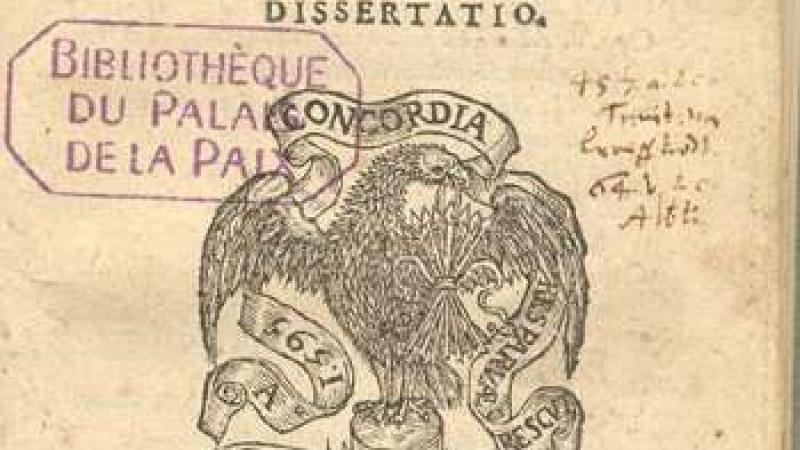
Mare Liberum sive De iure quod Batavis competit ad Indicana commercia dissertatio (English: The Freedom of the Seas, Or, The Right Which Belongs to the Dutch to Take Part in the East Indian Trade) is a small pocket-sized booklet of 68 pages, written by Hugo Grotius, and published in 1609 in Leiden by Elzevier. In this tiny work Grotius states his ideas of the principle of the ‘Free Sea’. The sea was to be considered international territory and all nations were free to use it for seafaring trade. In view of the Dutch competing with the Spanish, Portuguese and the English over navigating, trading and fishing issues, this was a highly controversial point of view. Grotius wrote the treatise while being a counsel to the Dutch East India Company over the seizing of the carrack Santa Catarina.
What Grotius initially produced was not a short, pointed pamphlet, but an expansive treatise (ca. 500 pages!) on the Law of Nations that systematised the then prevailing ideas about the Laws of War and implicitly also acts of privateering under such laws. It is generally accepted today that this treatise penned by Grotius forms one of the most important cornerstones in the origin of the moral Law of Nations. Grotius spent two years finishing the treatise, nowadays known under the title De Jure Praedae commentarius (English: On the Law of Prize and Booty). However, the treatise remained unpublished during his lifetime, except for this one chapter on the principle of the Free Sea. Under its famous title Mare Liberum, it was widely circulated and often reprinted. Only until 1868, the whole treatise De Jure Praedae was published.
Various editions in the Library's collection
The Peace Palace Library has an original copy of Mare Liberum, TMD 541, in the famous Ter Meulen/Diermanse Bibliographie des écrits imprimés de Hugo Grotius (The Hague, Martinus Nijhoff, 1950). The Library is also in the possession of other editions of Mare Liberum, most of them originals (TMD numbers 541-564) and various translations. Together, they form an important part of the renowned Grotius collection.
For more information, contact us at library@peacepalace.org.